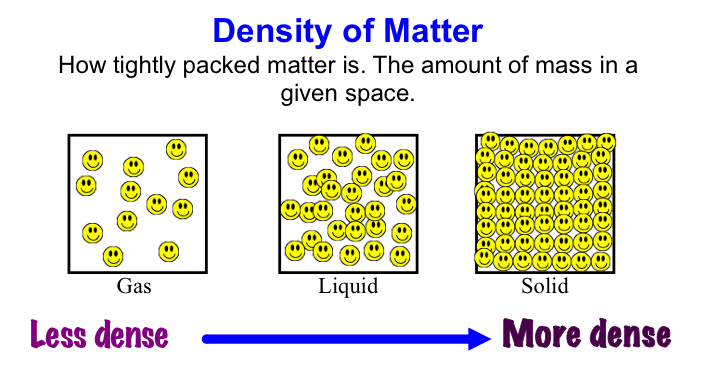Gasoline has a density of approximately 0.71 to 0.77 grams per cubic centimeter. The exact density varies based on temperature and composition.
Gasoline is a crucial fuel in our daily lives. This liquid is primarily used in internal combustion engines. Its density plays a vital role in determining energy content and performance. A higher density means more energy per unit volume. Gasoline’s density can fluctuate due to temperature and composition differences.
Understanding its density helps in optimizing engine efficiency and fuel consumption. It also affects the transportation and storage of gasoline. Knowing the density is essential for industries relying on precise fuel measurements. Accurate knowledge ensures better fuel economy and reduced emissions.
Gasoline Composition
Understanding gasoline composition is essential to grasp its density. Gasoline is a mixture of many hydrocarbons. These hydrocarbons come from crude oil. The refining process separates these hydrocarbons. Each component has different properties. Let’s explore the chemical makeup and refining process of gasoline.
Chemical Makeup
Gasoline contains hydrocarbons, primarily alkanes, cycloalkanes, and aromatics. Alkanes are simple chains of carbon and hydrogen. Cycloalkanes have carbon atoms in rings. Aromatics contain benzene rings. This mix affects gasoline’s performance and density.
Here’s a breakdown of common hydrocarbons in gasoline:
| Hydrocarbon Type | Example | Percentage |
|---|---|---|
| Alkanes | Heptane | 30% |
| Cycloalkanes | Cyclohexane | 20% |
| Aromatics | Benzene | 25% |
| Other | Various | 25% |
Refining Process
The refining process transforms crude oil into gasoline. Crude oil is heated and separated into fractions. This process is called fractional distillation. The lighter fractions become gasoline.
After distillation, gasoline undergoes additional treatments:
- Catalytic Cracking: Breaks large molecules into smaller ones.
- Reforming: Enhances octane rating by rearranging molecules.
- Blending: Mixes different fractions for desired properties.
These steps ensure gasoline meets quality and safety standards. The refining process also affects gasoline’s density. Different treatments create variations in density.
Understanding these processes helps explain how dense gasoline is. The chemical makeup and refining process both play crucial roles.
Credit: www.quora.com
Measuring Density
Understanding the density of gasoline is crucial. Density helps determine gasoline quality and performance. This section explores how to measure gasoline density.
Units Of Measurement
Density is typically measured in kilograms per cubic meter (kg/m³). You may also see it in grams per cubic centimeter (g/cm³). For gasoline, common units are:
- kg/m³
- g/cm³
- lb/ft³
Knowing these units helps compare different measurements easily.
Tools And Techniques
Various tools and techniques measure gasoline density accurately. Common tools include:
- Hydrometer: A device that floats in the gasoline to measure density.
- Density Meter: An electronic device providing precise readings.
- Pycnometer: A specialized flask for density calculation.
Each tool has its own advantages. The hydrometer is simple and quick. The density meter offers high precision. The pycnometer is used in laboratories.
To measure density, follow these steps:
- Ensure the gasoline is at a standard temperature, typically 15°C.
- Use the chosen tool to measure density.
- Record the measurement for future reference.
These steps ensure accurate and consistent measurements.
Understanding these tools and techniques ensures reliable gasoline density measurements.
Factors Affecting Density
The density of gasoline is not constant. Various factors influence it. These factors can change the fuel’s performance and efficiency.
Temperature Influence
Temperature plays a crucial role in gasoline density. Gasoline expands when heated and contracts when cooled. This means the same volume of gasoline weighs less in hot weather. Conversely, it weighs more in cold weather.
For example, at 60°F, gasoline has a standard density. But at 90°F, it becomes less dense.
| Temperature (°F) | Density (g/cm³) |
|---|---|
| 32°F | 0.745 |
| 60°F | 0.730 |
| 90°F | 0.715 |
Additives And Blends
Additives and blends also affect gasoline’s density. Additives are substances added to gasoline to improve performance. They can increase or decrease the fuel’s density.
For example, ethanol is a common additive. Ethanol-blended gasoline is less dense than pure gasoline.
- Pure gasoline: Higher density
- Ethanol-blended gasoline: Lower density
Different blends create different densities. The type and amount of additive change the density significantly.
Understanding these factors helps in choosing the right fuel. It ensures better performance and efficiency.
Comparing Densities
Understanding the density of gasoline helps us see its unique properties. Let’s compare its density with other fuels. This helps us understand its performance and efficiency.
Gasoline Vs Other Fuels
Gasoline has a density of about 0.71 to 0.77 grams per cubic centimeter. This makes it less dense than many other fuels.
| Fuel Type | Density (g/cm³) |
|---|---|
| Gasoline | 0.71 – 0.77 |
| Diesel | 0.82 – 0.95 |
| Kerosene | 0.78 – 0.81 |
| Ethanol | 0.789 |
As you can see, diesel is denser than gasoline. Kerosene and ethanol are also denser. This means gasoline is lighter than these fuels.
Impact On Performance
Density affects how much energy a fuel can store. Gasoline’s lower density means it has less energy per volume than diesel. This impacts performance in engines.
- Gasoline engines are lighter and faster.
- Diesel engines are more efficient and powerful.
Lower density also affects fuel efficiency. Gasoline engines might consume more fuel to produce the same power as diesel engines.
Understanding these differences helps in choosing the right fuel for specific needs. Each fuel has its pros and cons, influenced by its density.
Practical Applications
Understanding the density of gasoline has several real-world benefits. These applications impact fuel efficiency, storage, and transportation. By grasping these concepts, you can make better decisions about gasoline use.
Fuel Efficiency
Fuel efficiency depends on the energy content of gasoline. More dense gasoline means higher energy per unit. This translates to better mileage for your vehicle. Knowing gasoline density can help you choose the best fuel.
- Higher density = more energy.
- More energy = better mileage.
For example, winter gasoline blends have lower density. This leads to reduced fuel efficiency. Being aware of these changes can help you plan fuel purchases.
Storage And Transportation
The density of gasoline affects its storage and transportation. More dense gasoline takes up less space. This is crucial for bulk storage and shipping.
| Aspect | Impact of Density |
|---|---|
| Storage | Higher density saves space. |
| Transportation | Higher density reduces trips. |
Understanding gasoline density helps in planning storage tanks. Companies can optimize transportation logistics. This efficiency can lower operational costs.
Keep in mind that temperature can change gasoline density. Cold temperatures increase density, while warm temperatures decrease it. This variability must be considered in storage and transport plans.

Credit: www1.grc.nasa.gov

Credit: www.atmo.arizona.edu
Frequently Asked Questions
What Is The Density Of Gasoline?
Gasoline density typically ranges between 0. 71 and 0. 77 grams per cubic centimeter.
How Does Temperature Affect Gasoline Density?
Gasoline density decreases as temperature increases, making it less dense in warmer conditions.
Why Is Knowing Gasoline Density Important?
Knowing gasoline density helps in accurate fuel measurement and engine performance optimization.
Does Gasoline Density Vary By Type?
Yes, different gasoline blends and grades can have varying densities.
How Is Gasoline Density Measured?
Gasoline density is measured using hydrometers or digital density meters.
Can Gasoline Density Impact Fuel Efficiency?
Yes, denser gasoline can provide more energy, potentially improving fuel efficiency.
Conclusion
Understanding the density of gasoline is crucial for various applications. It impacts fuel efficiency and engine performance. Knowing this property helps in making informed decisions about fuel usage. Always consider gasoline’s density for optimal results in automotive and industrial settings.
Stay informed to maximize efficiency and performance.
